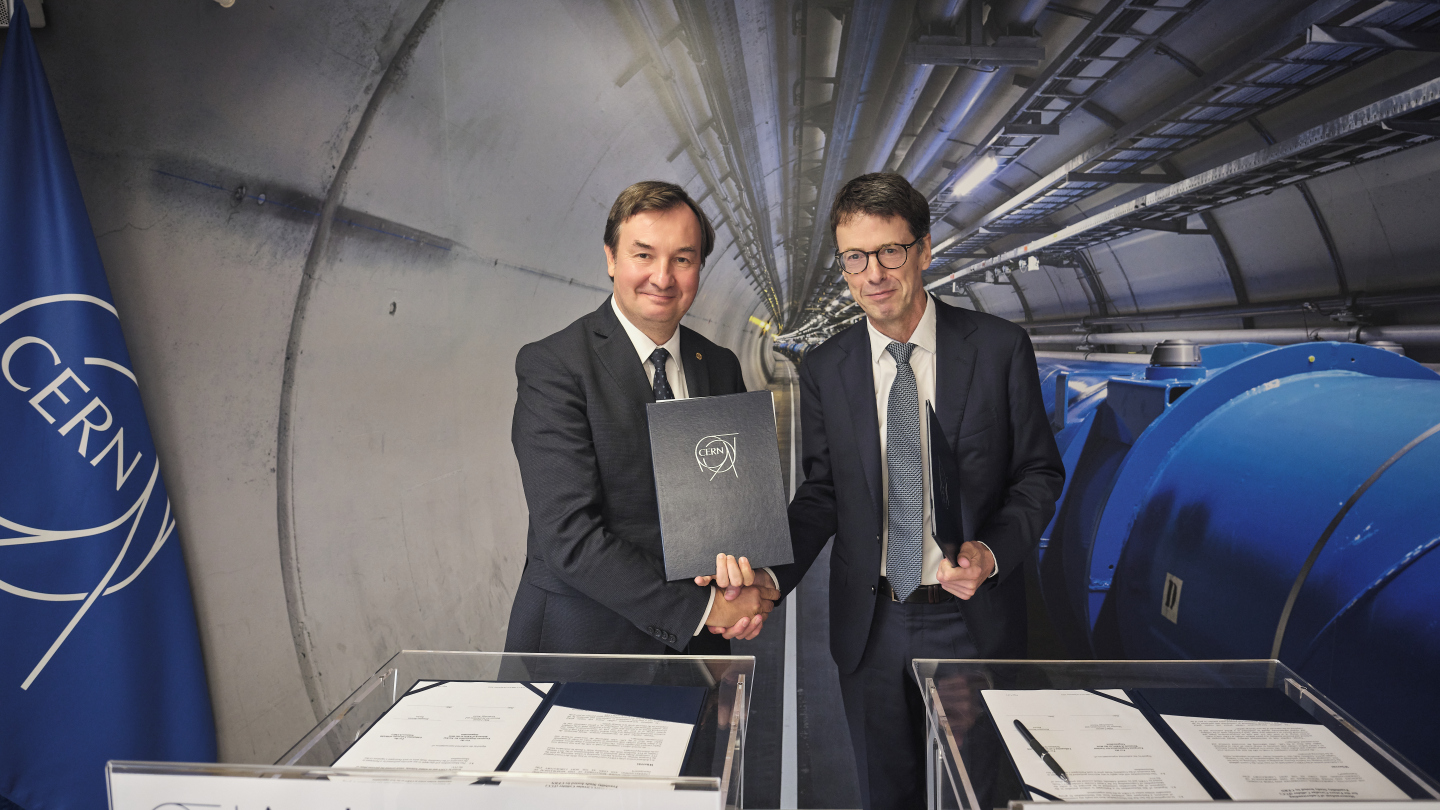VU and Two Other Lithuanian Universities Join CERN’s Feasibility Study for the Future Circular Collider
 Photo by Maximilien Brice.
Photo by Maximilien Brice.
On 22 September, three Lithuanian universities, including Vilnius University (VU), signed a memorandum of understanding with the European Organization for Nuclear Research (CERN) to participate in the feasibility study for the Future Circular Collider (FCC) project.
The memorandum was signed by VU Rector Prof. Rimvydas Petrauskas, Rector of Kaunas University of Technology (KTU) Prof. Eugenijus Valatka, Rector of the Lithuanian University of Health Sciences (LSMU) Prof. Rimantas Benetis, and CERN’s Director for Accelerators and Technology Mike Lamont.
‘At CERN headquarters in Geneva, we signed an agreement with the European Organization for Nuclear Research that should pave the way for Lithuania’s full membership in Europe’s largest scientific infrastructure. This participation opens up new opportunities for our researchers and students – some of whom are currently undertaking internships at CERN – as well as for business enterprises. CERN’s activities extend beyond its core field of particle physics and have a significant impact on the overall development and broader dissemination of science,’ said VU Rector Prof. Petrauskas.
The feasibility study will aim to explore the potential for building new particle accelerator research infrastructure in the CERN region (France and Switzerland). It will also assess the technological, geological, financial, and environmental aspects of this project, as well as the requirements and conditions under which such a large-scale facility could be safe, sustainable, and effective.
The FCC is a long-term project coordinated by CERN, designed to include two major particle accelerators operating within an approximately 100 km ring-shaped underground tunnel. The first, an electron-positron collider (FCC-ee), will be dedicated to precision studies of the Higgs boson and other particles; the second, a much more powerful hadron collider (FCC-hh), is to be installed in the same tunnel at a later phase of the project.
The existing Large Hadron Collider at CERN is scheduled to cease operations in 2041. Once the FCC project is implemented, the new tunnel will lie at an average depth of 200 metres underground, with eight surface sites supporting four major experiments.